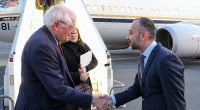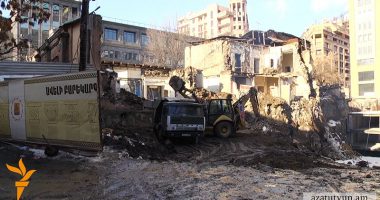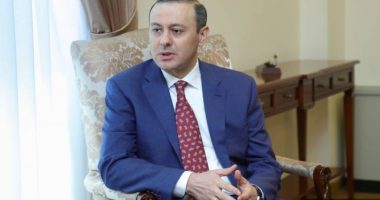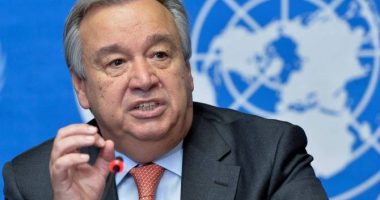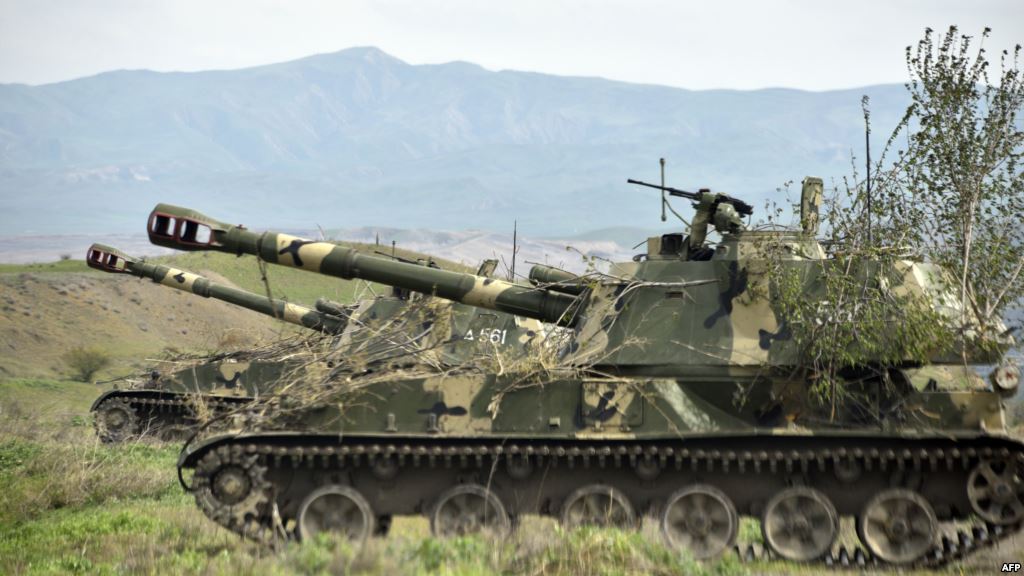Vigorous and multifaceted diplomatic processes are taking place around Armenia. The September incursion of Azerbaijan into the sovereign territory of Armenia has become an international matter of concern. Although the international communities are focused on Ukraine, the Caucasus region has gained attention where the West is trying to deliver Russia, yet another geopolitical retreat, parallel to its failures on the battlefields of Ukraine and the weakening of its position internationally.
The United States is significantly improving its standing within the region and with its effective diplomacy, is managing to curb Aliyev’s ambitions at least for now. US Secretary of State Antony Blinken is holding frequent conversations with the leaders of Armenia and Azerbaijan, with a clear message to the latter to be careful in its actions and not to oppose Washington’s calculated diplomacy. Nowadays, the United States speaks not only about the sovereignty and territorial integrity of Armenia, but also about the rights of the people of Artsakh.
Last week, a meeting was held in Prague with the participation of Prime Minister of Armenia Nikol Pashinyan, President of Azerbaijan Ilham Aliyev, President of France Emmanuel Macron, and President of the European Council Charles Michel. At the end of this meeting, Armenia And Azerbaijan reaffirmed the recognition of each country’s territorial integrity based on the Declaration of Alma-Ata.
In addition, another important decision was made during the Prague meeting. Armenia expressed its consent to the deployment of European Union civilian observers on the border with Azerbaijan. After rejecting the presence of military observers, Azerbaijan has agreed to the second option with some reservations. Immediately afterward, an advance team of European Union observers arrived in Armenia to deploy on the Armenian-Azerbaijani border.
All these events are taking place bypassing Moscow’s role within the region. Maria Zakharova, the spokeswoman for the Ministry of Foreign Affairs of Russia, expressed displeasure that the European Union is trying to interfere in the process of normalizing relations between Armenia and Azerbaijan by pushing Russia out. Instead of blaming Europe, Russia could have easily prevented the entry of other players into its region of influence by first constraining Azerbaijan and second, by not leaving its ally Armenia defenseless and in a weak position. It is already too late as the Speaker of the National Assembly of Armenia, Alen Simonyan stated during a visit to Moscow that, “Armenia does not have time for long-term security solutions.”
This past week, another meeting took place in Prague, this time between Armenian Prime Minister Pashinyan and Turkish President Recep Tayyip Erdogan. This was the first face-to-face meeting between the two neighboring countries’ leaders. At a press conference after the meeting, Erdogan answered an Armenian journalist’s question about the opening of the border with Armenia and the establishment of normal relations. “There are no preconditions, we just want you to resolve the issues between you and Azerbaijan, and sign an agreement to establish immediate peace. When you do that, there will be no problems with us. If the borders need to be opened, we will open them for all types of air, land, and railway passages,” he said. First stating that there are no preconditions, the Turkish president, in the next sentence, talks about the condition of signing the peace treaty with Azerbaijan. Thus, we can conclude that the current negotiations between Armenia and Turkey have already reached a dead end.
All these developments confirm that Yerevan’s multi-polar policy and close contacts with the United States, France, and the European Union are bearing their fruits in terms of restraining Azerbaijan and protecting Armenia’s territorial integrity. At this point, Armenia participates in all processes without ignoring Moscow’s role within the region. Russia can restore its standing in the region by fulfilling its obligations to Armenia and also by strengthening its long-term presence in Artsakh, otherwise the South Caucasus can completely get out of its sphere of influence.
K. Khodanian
“MASSIS”


